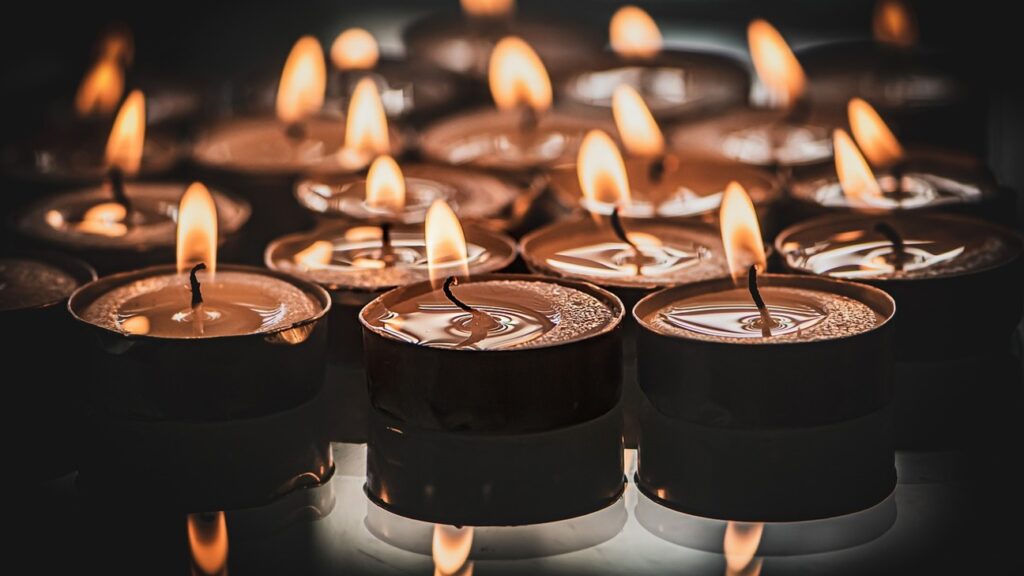Evidence Based
This article relies on solid scientific evidence, authored by experts, and thoroughly fact-checked by specialists.
Our team of licensed nutritionists and dietitians strives to maintain objectivity, impartiality, and honesty. We aim to present a fair representation of both sides of the argument.
Scientific references are included throughout this article. The numbers in parentheses (1, 2, 3) are clickable links to peer-reviewed scientific papers. These sources further support the information provided.

Anxiety disorders are a common mental health concern affecting millions of people worldwide. Similarly, alcohol consumption is widespread, with a significant portion of the population indulging in social or occasional drinking.
In a comprehensive review study examining the correlation between anxiety and alcohol use disorders, it was observed that this relationship can evolve into a perilous, self-perpetuating cycle (1
PubMed Central
Highly respected database from the National Institutes of Health
Go to source ).
While many people enjoy a drink to relax or unwind, there exists a complex and often detrimental link between alcohol and anxiety. In this comprehensive blog post, we will delve into the intricate relationship between these two factors, explore the associated risks, and discuss treatment options.
Introduction
Anxiety is a pervasive mental health issue that can affect individuals of all ages, genders, and backgrounds. It encompasses various disorders, such as generalized anxiety disorder (GAD), social anxiety disorder, panic disorder, and more. These conditions can cause intense feelings of fear, worry, and unease, often interfering with daily life.
On the other hand, alcohol is a psychoactive substance that people commonly turn to for relaxation and stress relief. However, the relationship between alcohol and anxiety is far more complex than it may initially appear. While some individuals may temporarily feel a sense of relief after consuming alcohol, this relief can be fleeting and followed by more significant negative consequences.
Understanding Anxiety
Before delving into the connection between alcohol and anxiety, it’s essential to understand anxiety itself. Anxiety is not just occasional worry or stress; it is a persistent and excessive apprehension about everyday situations. People with anxiety disorders may experience physical symptoms like a racing heart, sweating, trembling, and emotional symptoms such as restlessness, irritability, and a sense of impending doom.
Anxiety disorders often lead to a reduced quality of life, affecting personal relationships, work, and overall well-being. These disorders are typically diagnosed by a mental health professional who can differentiate between normal anxiety and a clinical condition.
The Connection Between Alcohol and Anxiety
The relationship between alcohol and anxiety is multi-faceted. Many people turn to alcohol as a coping mechanism for their anxiety, seeking temporary relief from their symptoms. Alcohol can create a sense of relaxation and euphoria, making it appear as though it’s helping individuals manage their anxiety.
However, this relief is often short-lived. Alcohol is a depressant, and its effects on the central nervous system can exacerbate anxiety symptoms in the long run. This paradoxical response can create a vicious cycle of increased anxiety leading to more alcohol consumption and vice versa.
Summary
The relationship between alcohol and anxiety is multifaceted, as alcohol may initially offer temporary relief but ultimately exacerbates anxiety symptoms, creating a harmful and cyclic dynamic.
Alcohol and Anxiety: Risks and Consequences
Physical Health Implications
Beyond the immediate psychological impact, excessive alcohol consumption can have severe physical health consequences. Some of these consequences include:
- Liver Damage: Chronic alcohol use can lead to liver diseases such as cirrhosis, which can be life-threatening.
- Heart Problems: Heavy drinking increases the risk of high blood pressure, cardiomyopathy, and irregular heart rhythms.
- Weakened Immune System: Alcohol impairs the immune system’s ability to fight off infections, leaving individuals more vulnerable to illness.
- Digestive Issues: Alcohol can irritate the gastrointestinal tract, leading to issues like gastritis, ulcers, and pancreatitis.
Psychological Consequences
In addition to the physical health risks, alcohol misuse can have a profound impact on an individual’s mental well-being. Specifically, the relationship between alcohol and anxiety can result in:
- Increased Anxiety: Regular alcohol consumption can lead to heightened anxiety levels and panic attacks.
- Depression: Alcohol is a depressant and can exacerbate symptoms of depression, which often co-occurs with anxiety disorders.
- Risk of Developing Anxiety Disorders: Prolonged alcohol abuse increases the risk of developing an anxiety disorder or exacerbating existing ones.
Self-Medication: The Vicious Cycle
Many individuals with anxiety disorders turn to alcohol as a form of self-medication. They may initially find that a drink helps them relax and temporarily alleviates their symptoms. However, this relief is often short-lived and can lead to a dangerous cycle:
- Anxiety leads to alcohol consumption for relief.
- Alcohol temporarily reduces anxiety symptoms.
- As the alcohol wears off, anxiety returns, often more intensely.
- This cycle can lead to increased alcohol consumption, tolerance, and dependence.
Breaking this cycle is crucial for those struggling with alcohol and anxiety, and it typically requires professional intervention and support.
Treatment Approaches
Addressing the complex relationship between alcohol and anxiety necessitates a multifaceted approach. Treatment options include:
Professional Help
- Therapy: Cognitive-behavioral therapy (CBT) and other evidence-based therapies can help individuals with anxiety disorders develop healthier coping mechanisms.
- Medication: In some cases, medication prescribed by a psychiatrist can be beneficial in managing anxiety disorders.
- Support Groups: Joining support groups or seeking individual counseling for alcohol misuse can be integral in overcoming addiction.
Lifestyle Changes
- Alcohol Reduction: Reducing or eliminating alcohol consumption is often necessary for individuals with anxiety disorders.
- Stress Management: Learning stress-reduction techniques such as mindfulness, meditation, and yoga can be beneficial.
- Healthy Diet and Exercise: A balanced diet and regular physical activity can improve both mental and physical health.
Alternative Therapies
- Herbal Supplements: Some individuals find relief from anxiety with herbal supplements like valerian root or chamomile.
- Acupuncture: This traditional Chinese therapy may help alleviate anxiety symptoms for some people.
- Biofeedback: Biofeedback techniques can teach individuals to control physiological responses associated with anxiety.
Conclusion
The relationship between alcohol and anxiety is intricate and potentially harmful. While alcohol may provide temporary relief from anxiety symptoms, it can ultimately exacerbate these symptoms and lead to a range of physical and psychological consequences.
Recognizing the signs of self-medication and seeking professional help is crucial for individuals trapped in the cycle of alcohol and anxiety. Effective treatment often involves therapy, lifestyle changes, and, in some cases, medication.
Understanding the complexities of this relationship is the first step toward breaking free from its grip and achieving a healthier, more balanced life. If you or someone you know is struggling with alcohol and anxiety, remember that help is available, and recovery is possible with the right support and resources.




